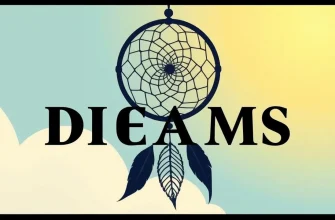In this collection, we delve into the lives of individuals whose stories are not just about personal triumphs but also about the profound impact they had on the world through their acts of nobility. These films not only entertain but also inspire, showcasing the power of human spirit and the enduring legacy of those who chose the path of honor and integrity. Here are ten biopics that celebrate the essence of nobility.

Gandhi (1982)
Description: This epic biopic traces the life of Mohandas K. Gandhi, from his early days in South Africa to his leadership of India's independence movement, showcasing his philosophy of non-violent resistance.
Fact: The film was shot in India with over 300,000 extras, making it one of the largest film productions ever.
 Watch Now
Watch Now 
Schindler's List (1993)
Description: This film tells the story of Oskar Schindler, a German businessman who saved the lives of over 1,000 Jewish refugees during the Holocaust by employing them in his factories. It's a testament to the power of one person's moral courage.
Fact: Steven Spielberg initially refused to direct this film, feeling he was not ready to tackle such a heavy subject. The film was shot in black and white to give it a documentary feel.
 Watch Now
Watch Now 
Erin Brockovich (2000)
Description: Julia Roberts plays Erin Brockovich, a single mother who becomes a legal assistant and almost single-handedly brings down a California power company accused of polluting a city's water supply.
Fact: Erin Brockovich herself made a cameo in the film, playing a waitress.
 Watch Now
Watch Now 
The Pianist (2002)
Description: This film follows Władysław Szpilman, a Polish-Jewish pianist, who survives the Holocaust by living in hiding in Warsaw, showcasing his resilience and the nobility of human spirit.
Fact: Adrien Brody learned to play Chopin's music for the film, and his performance was so moving that he won an Oscar for Best Actor.
 Watch Now
Watch Now 
A Beautiful Mind (2001)
Description: This film captures the life of John Nash, a brilliant mathematician who battles schizophrenia, yet achieves a Nobel Prize for his work in economics.
Fact: The film took liberties with Nash's life, particularly in depicting his hallucinations as more visual than they were in reality.
 Watch Now
Watch Now 
The Diving Bell and the Butterfly (2007)
Description: Based on the memoir of Jean-Dominique Bauby, this film portrays his life after a massive stroke leaves him with locked-in syndrome, yet he manages to write his book by blinking his left eye.
Fact: The film was shot from the perspective of Bauby, with the camera often positioned to mimic his limited field of vision.
 Watch Now
Watch Now 
Lincoln (2012)
Description: Daniel Day-Lewis stars as Abraham Lincoln, focusing on the last few months of his life as he navigates the political landscape to abolish slavery.
Fact: The film was shot in Virginia, where many of the events depicted actually took place.
 Watch Now
Watch Now 
The King's Speech (2010)
Description: Follow King George VI as he overcomes his stammer with the help of an unorthodox speech therapist. This film highlights the personal struggle and nobility of a monarch during a time of national crisis.
Fact: The film was inspired by the real-life friendship between King George VI and Lionel Logue, his speech therapist.
 Watch Now
Watch Now 
The Imitation Game (2014)
Description: Alan Turing's story, a mathematician who helped crack the Enigma code during WWII, is a tale of genius, sacrifice, and the fight for recognition in a time of prejudice.
Fact: The film's title is a nod to Turing's own test for machine intelligence, known as the Turing Test.
 Watch Now
Watch Now 
The Theory of Everything (2014)
Description: Explore the life of physicist Stephen Hawking, focusing on his relationship with his wife Jane and his groundbreaking work despite his battle with motor neuron disease.
Fact: Eddie Redmayne won an Oscar for his portrayal of Stephen Hawking, and the film was praised for its accurate depiction of Hawking's life.
 Watch Now
Watch Now 








